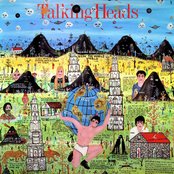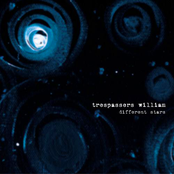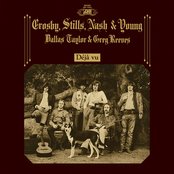The subject of miner’s champion and Liberal Member of Parliament Albert Stanley has been a recurring theme on the blog over the years – he seems to have been a thoroughly good man who spoke up for the miners and fought their corner in the face of harsh industrialists.
You can read about Albert in this article here and this one here – thanks to the research of Peter ‘Pedro’ Cutler and David Evans, we found out more about the man and what he stood for.
What came out as part of this is that David Evans himself was related to Albert Stanley – the great man was David’s Great Uncle, in fact!
Due to that family connection, David Evans was invited to attend the unveiling of a memorial plaque to Albert Stanley at the M.P.’s former home in Hednesford, on the 13th April 2019.
David was kind enough to take pictures and scan the booklet for those that attended, and write the whole thing up for which I’m immensely grateful. At the foot of the article, I include Peter Cutler’s account of Albert Stanley for your perusal.
If you have anything to add, please do: Comment here, tug my sleeve on social media or mail me: Borwnhillsbob at Googlemail dot com. Thanks.
David Evans wrote:
Images kindly supplied by David Evans.
Remembering Albert Stanley, M.P.
A memorable event took place in Hednesford where a plaque was unveiled at the home of one-time Member of Parilament, Albert Stanley M.P. – who was a Great Uncle of mine – on Saturday 13 April 2019, which I was invited to attend.
Dawley Heritage group have produced a fine history of his life both there and here in the Hednesford.
The house on this certificate Cleary isn’t the one in Hednesford! Image kindly supplied by David Evans.
The commemorative booklet gives some images from Albert’s life and includes an image of a Midland Miners’ Federation certificate from those times. I wonder where the house seen in the centre of this certificate is? Perhaps the Federation Offices once stood there?
These are some of the photos I took at the event.
Click any image to open in a larger version, or you can download this booklet in PDF form by clicking here.
Images and booklet scans kindly supplied by David Evans.
Peter Cutler wrote:
Albert Stanley MP (1862-1915)
Reading the history of the Cannock Chase coalfields a few owners and engineers are described in detail, such as Harrison, Hanbury, McClean, Williamson and others. But there is one man who seems to have only been mentioned in passing, and who in the respect of the workmen would rank way above these, being Albert Stanley, a true friend of the miner.
In the comments of the article ‘Littleton Colliery 1912, another Battle of Orgreave?”, Andy Dennis pointed to the concise biography of Albert Stanley by Dawley Heritage…
In 1912 Albert Stanley was an MP; he had given character references for the accused and appealed to the Home Secretary for a reduction in the harsh sentences.
In 1900 Captain William Bealey Harrison was electioneering for MP as Unionist candidate for Lichfield. He stood against Sir Courtenay Warner of the Liberals. It is not surprising that Albert Stanley would support and canvas for the Liberals.
In October of that year the the Captain addressed at meeting at the Craddock Memorials Schools in Norton Canes. He was introduced by the Chairman Dr. W.H. Whitehouse as a Norton man, a large colliery owner, and a man upon whom they were depending for their daily bread. He added that never had the affairs of the working men been in such a flourishing condition as at present.
The Captain referred to Mr Albert Stanley and said that he would dare him to meet face to face and make the same remarks to him that he had made behind his back. He claimed that Stanley had asserted that he opposed their receiving a wage on October 1st, which was due on January 1st. He had advocated it, and it was an act of grace on the part of the employers to give the advance at once. The Captain also complained that during the strike of 1893 he was stated to have said that ‘he would make the Colliers eat grass’ …Mr Stanley reminded him of a man with two suits, a Sunday suit and a weekday-suit.
There was an exchange of letters in the Lichfield Mercury in which Albert noted Harrison’s remarks. He said that his opposition to the Captain was from a miner’s point of view, on account of his opposition to the Eight Hours Bill, and the attitude he had adopted to the Workmen’s Compensation Act. He defied Harrison to produce any statement that he had made that was not strictly true. He acknowledged that the Captain had proposed payment on the 1st of October, but had never had knowledge of the expression concerning the eating of grass. He also replied to being one person on Sunday, and another during the week;
‘that on Sunday I preach brotherly love, harmony and concord, but that when I put on my working suit I was a different man altogether, and that I reminded you of a man who did not always practice what he preached.’
During Albert’s time representing the miners he must have attended many Coroner’s Inquiries. At a miners inquest at Hednesford, just after his death, the acting Coroner SW Morgan referred to his death..
There were three things that stood out in Mr Stanley’s character, the first being his great sincerity. He did not think he had come across a man who was more genuinely sincere than Mr Stanley. The second was his intense zeal to promote and safeguard the interests of those whom he came to represent. He always watched over their interests with the utmost care, and he always put questions which were calculated to protect their interests.
Further, there was Mr Stanley’s fair mindedness… Adding to this Mr JR Felton (HM Inspector of Mines) said the whole of the Mines Inspectors in the Midland area deeply regretted the death of Mr. Stanley. He was a man of integrity of character and he was absolutely fair-minded.
At the end of the biography highlighted by Andy it says…
On his death it is said that there were drawn blinds in every mining village of Cannock Chase, as pit veterans and their sons alike felt they had lost a very great champion.
The funeral procession was about a quarter mile long, and tributes came from many mining districts. Rev. F.W. Henshall said…
No man has suffered more, and sacrificed more, than had Mr Stanley for the Cannock Chase district. He suffered with his men… in the great strike of 1893 he pledged his furniture, and even the books that he loved so much… he staked his all for the miners… A Stanley had died a martyr’s death and had lived a martyr’s life.



















 RSS - Posts
RSS - Posts










Hi Bob,
please accept my sincere thanks for this excellent presentation and for all the hard work you have put into this. My thanks, too, to dear Pedro, our researcher par excellence for this accompanying information.
with my best wishes
David
Hello everyone!
Sorry it’s a bit late but I’ve just got around to searching for some photos of the event. We were kindly invited by Patric Stanley as Albert was my Mums G G Grandfather and my G G G Grandfather. As we live in Kent, it was just too short notice for us to make it. But we’re so happy that all these years later he is still remembered. And although we live quite a way, I’m really looking forward to visiting the plaque and also his resting place, as I’m sure a lot more of our family are there too… can anyone confirm which church yard his grave is? Is it the one in Cannock, on Cemetery Road 🙂
the grave is in Hednesford..on the hill behind the church…
kind regards
David
Hi David
That’s great thank you for letting me know. 🙂
Suzanne